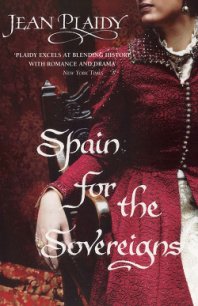Aztec - Jennings Gary (электронные книги без регистрации txt) 📗
"Indeed," I said drily. "Even her imagination has improved since I first met her. But she did say that she would do anything to realize her ambitions. I suggest to all of you that you be most guarded in the words you speak within hearing of the Lady Malinali."
I think it was on the next day that Cortes arranged for the lords a demonstration of his marvelous weapons and his men's military prowess, and of course I was present, among the crowd of our porters and the local Totonaca who also gathered to watch. Those commoners were awe-stricken by what they saw; they gasped at intervals and murmured "Ayya!" and called often upon their gods. The Mexica envoys kept they faces impassive, as if they were unimpressed, and I was too busy memorizing the various events to make any exclamations myself. Nevertheless, the lords and I several times flinched at the sudden claps of noise, as startled as any commoners.
Cortes had had his men build a little mock house of driftwood and some leftover ship's timbers, so far up the beach that it was only just visible from where we stood. On the beach before us, he had positioned one of the heavy yellow-metal tubes on high wheels....
No, I will call things by their proper names. The wheel-mounted tube was a brass cannon whose muzzle pointed toward the distant wooden house. Ten or twelve soldiers led horses into a row on the hard-packed damp sand between the cannon and shoreline. The horses wore some of that equipment I had earlier been unable to comprehend: the leather chairs which were saddles for sitting on, leather reins for the animals' guidance, skirts of quilted material very like our people's fighting armor. Other men stood behind the horses, with the giant staghounds straining against the leather straps that held them in check.
All the soldiers were in full fighting garb, and very warlike they looked, with shining steel helmets on their heads and shining steel corselets over leather doublets. They carried swords sheathed at their sides, but when they mounted to their saddles, they were handed long weapons resembling our spears, except that their steel blades, besides being pointed, had protrusions at either side to deflect the blows of any enemies they rode against.
Cortes smiled with proprietorial pride as his warriors got into position. He was flanked by his two interpreters, and Ce-Malinali was also smiling, with the mildly bored superiority of having seen the performance before. Through her and Aguilar, Cortes said to our Mexica lords, "Your own armies are fond of drums. I have heard their drums. Shall we commence this spectacle with a drum beat?"
Before anyone could answer, he shouted, "For Santiago—now!" The three soldiers tending the cannon did something that flashed a small flame at the rear of the tube, and there came a single drumbeat, as loud as any noise ever made by our drum which tears out the heart. The brass cannon jumped—and so did I—and from its mouth came a smoke like stormclouds, and a thunder to rival Tlaloc's, and a lightning brighter than any of the forked sticks of the tlaloque. Then, after my blink of surprise, I saw a small object hurtling away through the air. It was of course an iron cannon ball, and it hit the faraway house and smashed it into its separate pieces of wood.
The cannon's sudden crash of thunder was prolonged, as Tlaloc's often is, into a rumble of lesser thunder. That was the sound the horses' iron-shod feet made, pounding on the sand flats, for the riders had put their mounts to a full gallop at the moment the cannon had bellowed. They went off along the beach, side by side, as fast as any unencumbered deer could run, and the great dogs, let loose at the same time, easily kept up with them. The horsemen converged on the ruins of the house, and we could see the glint of their flourished spears, as they pretended to cut down any survivors of the demolition. Then they all turned their mounts and came pounding back down the beach toward us again. The dogs did not immediately accompany them, and, although my ears were ringing, I could distantly hear the staghounds making ravenous roaring noises, and I thought I heard men shrieking. When the dogs did return, their fearsome jaws were smeared with blood. Either some of the Totonaca had chosen to hide near that mock house to watch the proceedings, or Cortes had deliberately and callously arranged for them to be there.
Meanwhile, the approaching horsemen were no longer keeping in a line abreast. They were weaving their horses back and forth among each other, in intricate movements and crossings and patterns, to show us what perfect control they could maintain even at that headlong speed. Also, the big red-bearded man, Alvarado, did an even more amazing performance all his own. At full gallop, he swung off his saddle and, holding to it with just one hand, ran alongside his thundering animal, easily keeping pace with it, and then somehow, without slowing speed, vaulted from the ground back onto the leather seat. It would have been an exploit of admirable agility even for one of the Fast of Feet Raramuri, but Alvarado did it while wearing a costume of steel and leather that must have weighed as much as he did.
When the horsemen had finished displaying the speed and surefootedness of their massive animals, a number of foot soldiers deployed on the beach. Some carried the metal harquebuses as long as the men were tall, and the metal rods upon which those things must be rested for taking aim. Some carried the short bows mounted crossways on heavy stocks which are held braced against the shoulder. A number of adobe bricks were brought by some Totonaca laborers and stood on end a good arrow's flight distant from the soldiers. Then the white men knelt and alternately discharged the bows and the harquebuses. The bowmen's accuracy was commendable, hitting perhaps two of every five bricks, but they were not very quick with their weapons. After propelling an arrow, they could not just pull the bowstring back again by hand, but had to draw it taut along the stock by means of a small turning tool.
The harquebuses were more formidable weapons; just the crash of noise and the billows of smoke and the flashes of fire they made were enough to daunt any enemy facing them for the first time. But they threw more than fear; they threw small metal pellets, flying so fast that they were invisible. Where the short arrows of the crossbows merely stuck in the bricks they hit, the metal pellets of the harquebuses struck the bricks so hard that they blew apart into fragments and dust. Nevertheless, I took note that the pellets really flew no farther than one of our arrows could fly, and a man using the harquebus took so long to prepare it for its next discharge that any of our bowmen could have sent six or seven arrows at him in the interval.
By the time the demonstration was over, I had still more bark paper drawings to show to Motecuzoma, and much to tell him besides. I lacked only the pictured face of Cortes he had requested. Many years before, in Texcoco, I had sworn never to draw any more portraits, for they seemed always to visit some disaster upon the person I portrayed, but I had no compunction about bringing trouble to any of the white men. So the next evening, when the Mexica lords sat down for their final meeting with Cortes and his under-chiefs and his priests, there were five of us lords. None of the Spaniards seemed to notice or to care that our number had been increased by a newcomer, and neither Aguilar nor Ce-Malinali recognized me in my lordly vestments any more than they had when I was posing as a porter.
We all sat and dined together, and I will refrain from comment on the eating manners of the white men. The food had been provided by us, so it was all of the best quality. The Spaniards had contributed a beverage called wine, poured from large leather bags. Some of it was pale and sour, some dark and sweet, and I drank only sparingly, for it was quite as intoxicating as octli. While my four companion envoys carried the burden of what conversation there was, I sat silent, trying as unobtrusively as possible to capture Cortes's likeness with my chalk and bark paper. Seeing him close for the first time, I could discern that the hair of his beard was rather more sparse than that of his fellows. It could not adequately conceal an ugly puckered scar under his lower lip, and a chin that receded almost like a Maya chin, and I put those details into my portrait. Then I became aware that the whole circle of men had fallen silent, and I looked up to find Cortes gray eyes fixed on me.




